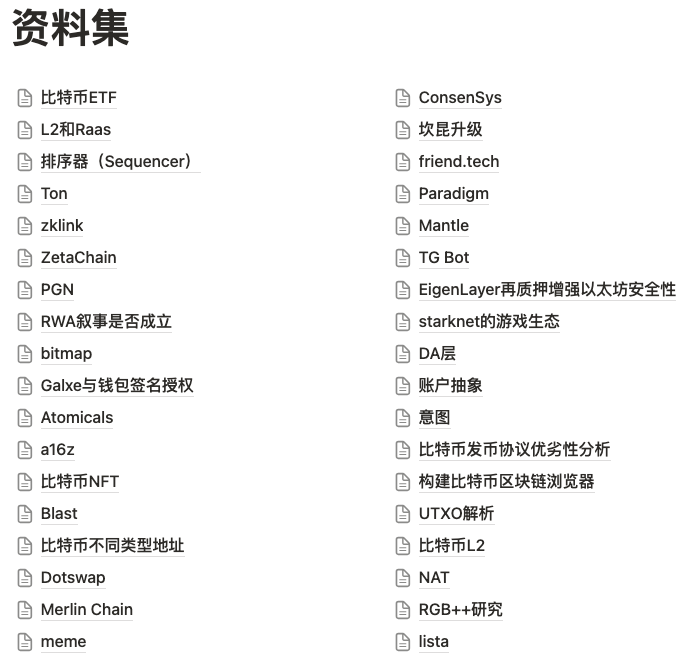The first batch of post-2000 Web3 workers have begun to "retire"
- 核心观点:Web3行业理想幻灭,过度逐利。
- 关键要素:
- 行业重心从技术转向投机炒作。
- 00后从业者纷纷退出或转行。
- 项目生命周期短,缺乏真实价值。
- 市场影响:人才流失加剧行业空心化风险。
- 时效性标注:中期影响。
Original | Odaily Planet Daily ( @OdailyChina )
By Golem ( @web3_golem )
" I don't want to work anymore ," I said to the conference screen, disheveled and with a blank look in my eyes, during a midweek meeting (my camera wasn't on, so they couldn't see me). After I said this, the atmosphere in the meeting froze for two seconds. "Golem, please stay after this meeting," the editor-in-chief's voice broke the silence.
Thankfully, after the meeting, the editor-in-chief actually addressed my concerns, not me. After several discussions (mostly asking about my hobbies), we all came to the same conclusion: I needed to get out and about, to change my surroundings. So, I went to a music festival in Guiyang, and then spent a week in Kunming.

Rock fans from all over the country revel in the music festival
Web 3 is no longer the brightest light in my heart
This low energy and sense of loss wasn't new to me; I'd felt this way many times since 2025. Many friends wondered if it was because I was working, because no one is happy being treated like a slave.
Anyone who says that clearly doesn't understand Web 3. Our industry is arguably the least classroom-like —higher salaries than our peers, the freedom of remote work, flexible hours, no clock-in/out system, and an open, flat management structure—each of these benefits, in today's involuted employment environment, is a dimensionality-reducing blow to our peers.
If we divide workplace generations into five-year periods, with those born after 2005 already making their mark in the Web 3 workforce, I, born in 2002, could be considered one of the first wave of Web 3 workers born after 2000. While these workplace benefits remain unchanged, Web 3 is no longer the golden age of my life.
I started learning about Web 3 at school in 2021, and in 2023, I began systematically studying the industry and entered the workforce as an intern. I remember this industry as being filled with the most idealists. I entered Web 3 with a passion for blockchain and decentralization, and a revolutionary spirit, believing it could transform the world for the better. Data ownership, personal privacy protection, trustless currencies, decentralized finance, an open and transparent Web 3... I will persevere and fight for my ideals, the cause I cherish.
However, reality has taught me that this industry is all about money. " Perhaps my understanding of Web 3 and blockchain is too idealistic and superficial. I hope to gain a deeper understanding in the new year ." At the end of 2024, when my boss asked me about my plans for 2025, I, only six months after graduating, expressed this expectation to myself.
Journalists are undoubtedly a great place to observe and learn about Web 3. Every day, we receive a massive amount of raw, firsthand industry information, which we then collate, process, and then release to the market. My previously positive outlook on Web 3 is also being reshaped. Just look at what we've experienced from 2024 to 2025. No one truly cares about the value of technology anymore, no one talks about ideals anymore; the focus is solely on money.
In the first half of 2024, we began to deconstruct VCs and project parties. We saw low-priced chips unlocked to dump the market, fake data disks created through airdrops, and the "issuing coins is the end" strategy. We realized that under the technical narrative packaged by VCs, "money" was the goal; then the Meme season broke out, and players with ulterior motives built communities under the banner of decentralization and common ideas. Third-rate developers were praised highly by the "AI Agent Saints", and celebrities outside the circle were given grand "courtesy" when issuing coins. In the end, they all ended up issuing coins → FOMO → abandoning the community/project. "Money" was still the goal; when all liquidity was about to be squeezed out, smart crypto people turned their attention to the stock market. Backdoor listings and establishing treasuries of listed companies became a means of finding "new money", and what these companies did was still not important.
As a result, my understanding of Web 3 changed from "this is an industry that can make the world a better place" to "this is just an industry that makes money relatively quickly", and I also looked towards "money".
While I continue to monitor industry trends and intensively research new projects and trends, my personal Twitter account hasn't updated with crypto-related content in a while. Fans sometimes message me asking why I no longer publicly share projects (thanks for the recognition), and my reasoning is that, aside from speculation, there aren't any projects that truly pique my interest anymore, and I've lost the desire to share.
"Golem, you need excitement, even if it's work," the deputy editor-in-chief told me. This reminisced about my time in 2023, when I officially joined the industry as an intern writing research reports at a major company. Back then, I was immersed in the obsession and excitement of Web 3. I'd chase after my mentors to discuss how cross-chain bridges enabled asset transfers between two chains, and what blockchain ethical issues would arise from the monopoly of L2 sorters. I'd cycle along the Hangzhou riverside and ask friends, "How do we understand account abstraction in a simple way?" But there's no going back.

Some materials I compiled for learning Web 3 in the early days of my career
Some people also told me that this is simply because the market is bad or you haven't made any money. In a bear market, internal conflicts intensify, and as long as we can hold on to a bull market, everyone will be happy. Money may be a big factor, but a lack of sense of achievement is the real reason.
The first batch of post-2000 Web 3 workers have begun to withdraw/fade out of the circle
While social media is filled with stories of post-2000s investors getting rich overnight by trading cryptocurrencies or finding themselves in Web 3 workplaces being called upon by post-2000s, some post-2000s Web 3 workers have quietly retired. Many of their former colleagues have moved on to other industries.
Wang Yue, a post-2000s investor, had a similar journey to mine. He started as an intern at a VC firm in 2023 and later joined a Web 3 company. At the end of July of this year, he resigned to start a foreign trade business. Wang Yue told me that leaving his job didn't mean he'd stop paying attention to Web 3 and cryptocurrency trading. He'd still invest when opportunities arose, but he wouldn't be as invested as before. " I'm actually not very confident in my ability to speculate in cryptocurrency. Perhaps working in the real economy is more suited to me ," he told me in his final words.

Wang Yue discusses entrepreneurial ideas with his foreign trade partner
More and more people born in the 2000s are beginning to realize that the cryptocurrency world is a suitable financial investment, not a suitable career choice . Taozi, a 2000 graduate student from Zhejiang University, was active in student blockchain organizations and interned on Web 3 projects during her time at the university. After graduation, she became a civil servant in her hometown. "I'm an experiential person, and I believe that life is more important than work, so I only consider Web 3 a sideline for financial management," Taozi explained to me why she didn't choose Web 3 full-time after graduation.
Even some startups born in the 2000s are starting to abandon Web 3. " When I joined, the project had Web 3 plans, but for various reasons, it's still purely a Web 2 model ," said Xiaoyu, a post-2000s startup. Before graduation, she interned at a Web 3 fund and later joined a startup team affiliated with the Japanese anime community, where she took over as CEO this year. We used to discuss Web 3 in the same community, but since 2024, Xiaoyu has stopped focusing on it. As a startup, she told me they're still figuring out how to close their business loop and aren't considering Web 3 plans in the short term.
But one thing they share is that, whether they're civil servants or entrepreneurs, those who've experienced Web 3 can no longer tolerate the high-pressure environment imposed on workers in traditional industries. "My main job now is actually fortune-telling, and my side hustle is part-time work," Meimei agrees, strongly agreeing with the sentiment that "after a stint in Web 3, you can no longer work part-time." Meimei isn't a typical post-2000 generation, but as someone born in May 1999, she was once a role model for me.
However, she recently told me that she's gradually withdrawing from Web 3. This is partly due to the company's business transformation. Meimei's company originally focused on Web 3 games, but now it's engaged in investments that have nothing to do with Web 3. " Web 3 games aren't part of this cycle, and the boss wants to pursue something that interests her ," Meimei explained, explaining the company's drastic shift.
Unlike others who have exited the cryptocurrency world and are still considering it as a financial investment, Meimei has completed her exit more completely, even to the point of no longer investing in Bitcoin. "I think people who don't have a sense for money aren't suited to Web 3. If you don't understand the psychology of speculators, you won't get the excitement," Meimei said, adding that Web 3 has left her feeling exhausted.
The number of people who consider Web 3 their lifelong career is gradually decreasing. Yamato, a junior from the same university, was deeply involved in Web 3 during his undergraduate years. As a recent graduate, he joined a Web 3 company and earned a monthly salary exceeding 10,000 yuan upon graduation. This isn't uncommon in the Web 3 world, but it surpasses many recent graduates. However, he recently told me, "I'm going to make as much money as possible while I'm young. If the market is bearish in the second half of the year, I'll apply for the civil service exam." I was a little surprised to hear this answer. Why would someone who has benefited from it still be so skeptical of Web 3? He said, "I just think working in Web 3 is too unstable. Once I make enough money, I'll probably quit sooner or later."
The mountains are not mountains, the water is not water
The above conversations took place before and after I returned from Kunming.
As the crypto industry and traditional finance converge, and global regulators embrace Web 3, Bitcoin, Web 3, and blockchain have become widely known. However, there have always been two Web 3s in the world: one that prioritizes the attributes of crypto assets, allowing them to be swallowed up by the traditional financial system; the other, a Web 3 that continues to involve inward, filled with projects with no hope of breaking out and serving only the crypto elite.
These two Web 3 worlds are starkly disconnected. I once dove headfirst into the latter, but aside from seeing projects with lifespans of only a few months, my account's "Happy Beans" waxing and waning, and a sense of emptiness, I felt little reward. I'm beginning to understand why Wang Xiaoer, after making a fortune, gives free meal coupons to sanitation workers. Besides redistributing wealth through various methods and models, can this industry actually make the world a better place?
In Kunming's Dianchi Lake, there are several floating grass blocks, contrasting with the vast lake surface. I specifically looked it up and found that these grass blocks are used to improve water quality and reduce eutrophication.

But this scene of being at the mercy of wind and waves really reminds me of myself being in the vast ocean of Crytop, losing my direction and being hit by the wind and waves.
Note: Wang Yue, Taozi, Xiaoyu, Meimei and Yamato in the article are all pseudonyms.



